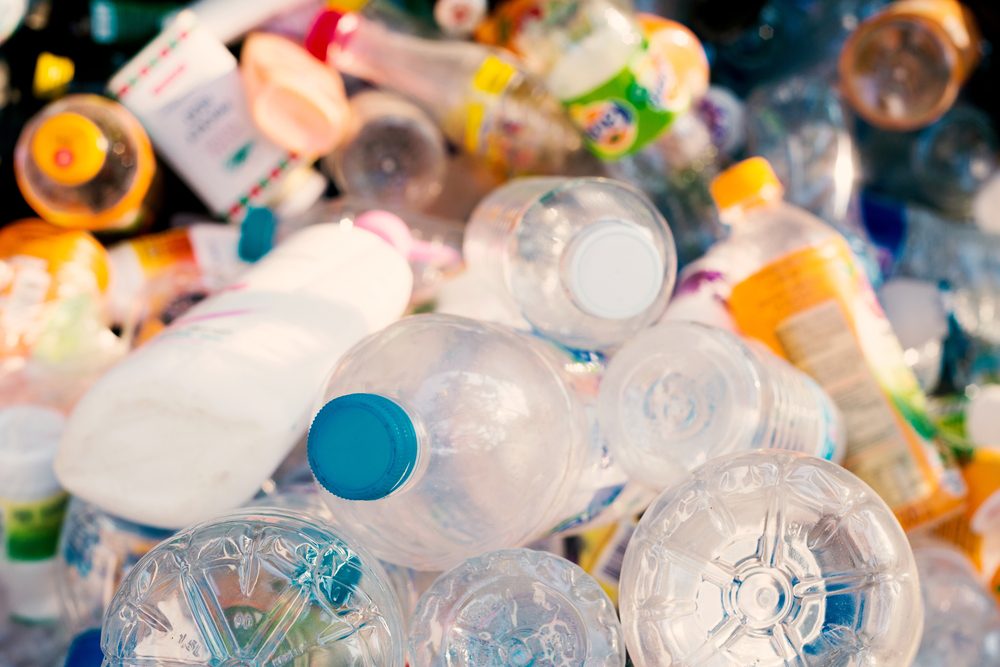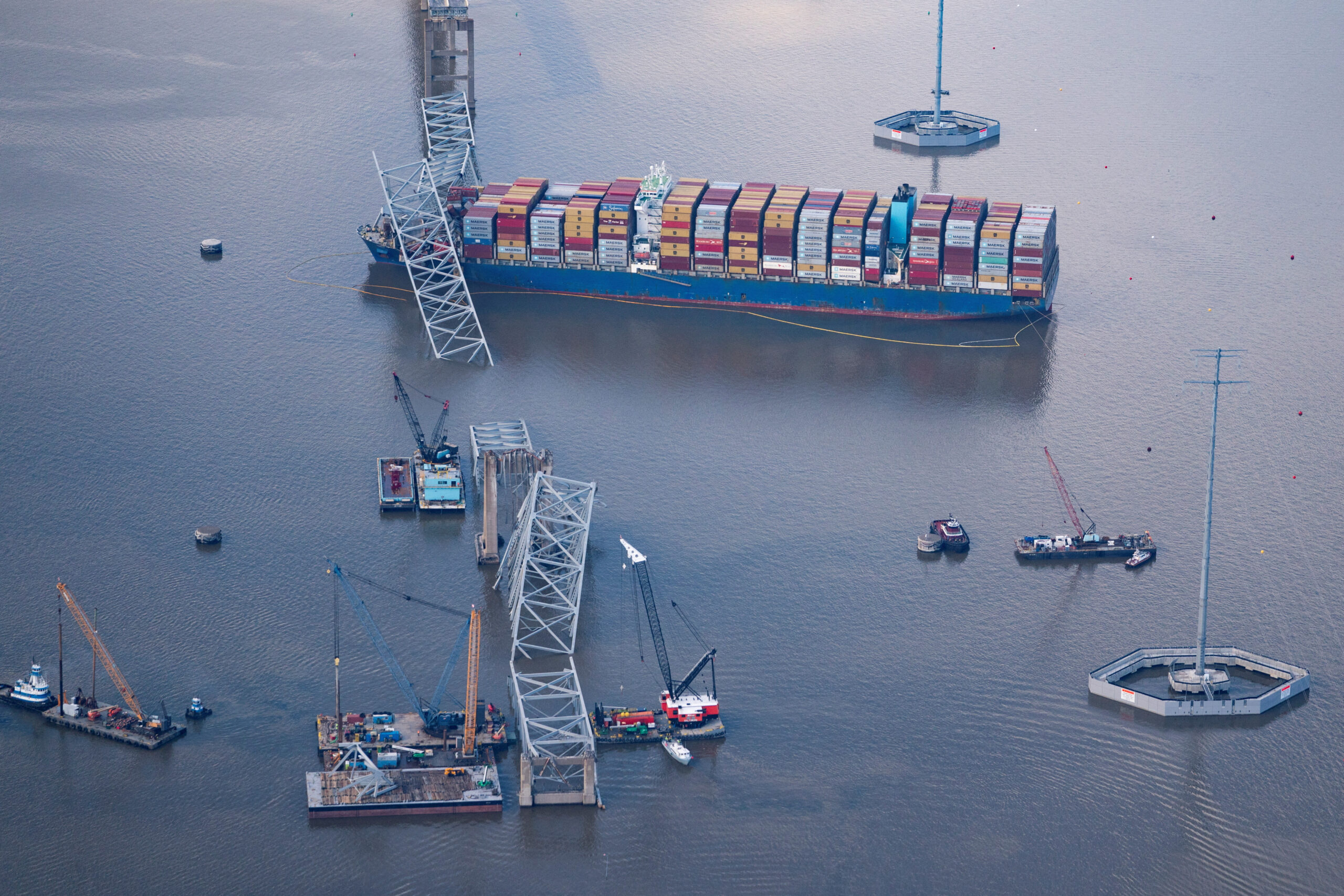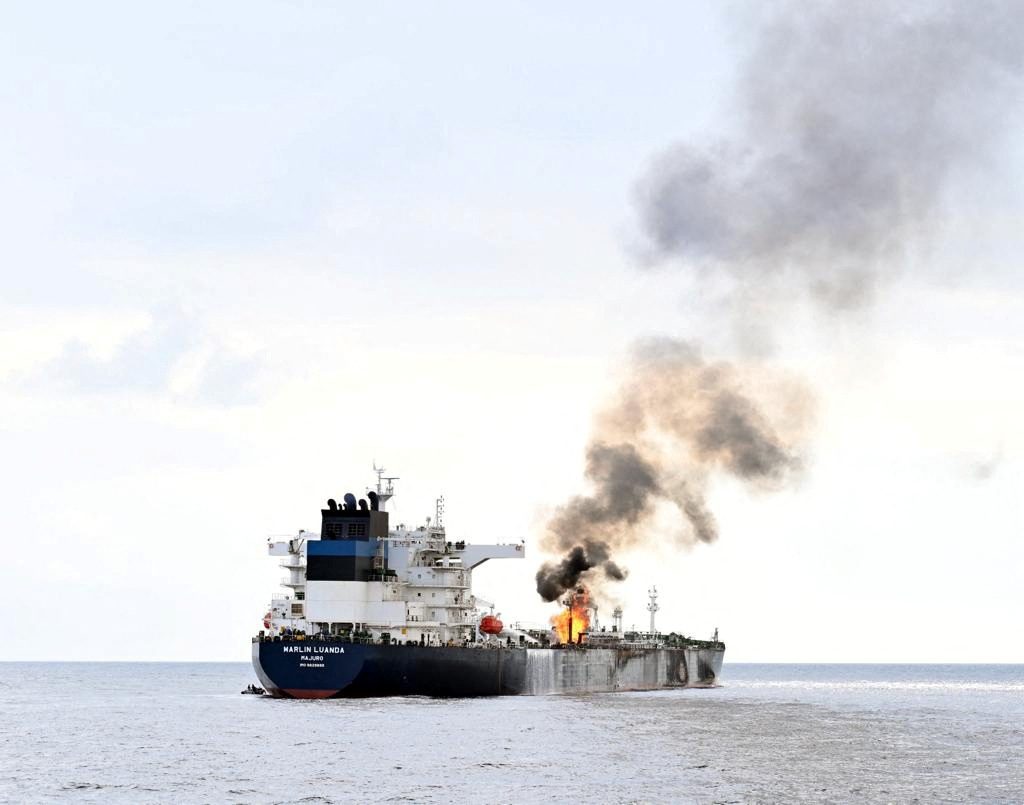Photo: By Teerasak Ladnongkhun / Shutterstock
By Jack Kaskey and Ann Koh (Bloomberg) — China is upending the global plastics market.
The world’s biggest user of scrap has stopped accepting shiploads of other countries’ plastic trash as it phases in a new ban. That’s bad news for the recycling industry, as China has been a major consumer of salvaged materials it processes into resin that ends up in pipe, carpets, bottles and other cogs of modern life.
China has begun buying brand new plastic to replace all the recycled scrap — and that’s great news for U.S. chemical makers such as DowDuPont Inc., which are scrambling to find markets for millions of tons of new production amid an industry investment binge. U.S. exports of one common plastic are expected to quintuple by 2020.
“It’s a good time to be bringing on some new assets,” Mark Lashier, Chief Executive Officer of Chevron Phillips Chemical Co., said in an interview last month as he marked the opening of two polyethylene plants in Old Ocean, Texas. “If you pull recycled plastic out, that market demand is going to increase.”
China is undoing decades of effort that built a massive scrap recycling industry — the cheapest way to produce plastic products for its growing economy. The country accounted for 51 percent of the world’s plastic scrap imports last year, with the biggest contribution coming from the U.S., according to the Institute of Scrap Recycling Industries, an international trade group.
Supply Shift
Now China is changing course, telling the World Trade Organization in July that it will stop accepting imports of used plastics and paper by Jan. 1 as the nation takes steps to clean up its industrial pollution. The China ban could shift about 2 percent of global polyethylene plastics supply from recycled to new material, Vincent Andrews, an analyst at Morgan Stanley, said in a Nov. 30 report. The country has already halved its purchases of scrap polyethylene from a 2014 peak, he said.
The U.S. is the only country in a position to quickly fill the gap, said Jonas Oxgaard, an analyst at Sanford C. Bernstein & Co.
That’s because the U.S. has become the cheapest place in the world to make plastic, thanks to a fracking boom that’s created a glut of natural gas, the main feedstock for manufacturing. Taking advantage of low gas prices, chemical producers have invested an unprecedented $185 billion to build new capacity in the U.S., according to the American Chemistry Council, an industry group.
Natural gas prices at $3.50 per million British thermal units would be about $20 a barrel on an oil equivalent basis, Royal Dutch Shell Plc said during an investor briefing on Oct. 13. West Texas Intermediate crude futures traded at $57.40 a barrel at 5:04 p.m. Singapore time.
Exporting high-value resins to China instead of cheap scrap could help chip away at the U.S.’s $250 billion trade deficit with the nation — a goal that has been on the top of President Donald Trump’s agenda.
Two-Way Flow
“Some of the patterns of production we saw 15 years ago are starting to change quite rapidly,” said Simon Tay, chairman of the think-tank Singapore Institute of International Affairs. “The two-way flow between U.S. and China becomes much stronger.”
About 30 percent of North America’s recyclables were historically processed in China, according to Morgan Stanley’s Andrews. China is creating a void in the market for used plastic that will have a “devastating impact” on recycling worldwide, according to the recycling trade group.
So far, domestic markets for used polyethylene, PET and polypropylene remain healthy, said Brent Bell, vice president for recycling at Waste Management Inc., North America’s largest trash hauler.
Even so, some recycling programs are beginning to come under stress because China has stopped issuing licenses to import scrap plastics ahead of the Jan. 1 ban, Bernstein’s Oxgaard said. Global prices for the waste have already dropped 10 percent, said Aloke Lohia, chairman of Indorama Ventures Pcl, which buys used plastic bottles for its processing plants in Europe, Mexico and Thailand.
The U.S. West Coast appears to be hardest hit. In the area around Portland, Oregon, for instance, some recyclers are limiting the types of plastics they will accept. Waste haulers in rural parts of the state recently began steering some plastic to the trash dump because the market is drying up, said Peter Spendelow, a recycling policy analyst for the Oregon Department of Environmental Quality.
Darkening Outlook
While at this point most of the scrap is still finding a home, “there is certainly potential for things to get a lot worse,” Spendelow said.
For producers, however, China’s ban on importing scrap will boost demand for new plastics by enough to nearly absorb all the new polyethylene output coming online next year in the U.S., Andrews said in the Morgan Stanley report. The effects can already be seen in China’s increased appetite for virgin polyethylene, with imports up 19 percent this year as scrap polyethylene imports dropped 11 percent, he said.
Export Explosion
U.S. exports of polyethylene plastic to Asia will reach about 5 million tons by 2020, a five-fold increase from last year, with most of it headed to the Chinese market, according to J.P. Nah, an Asia polyolefins analyst at IHS Markit consultants.
Four new U.S. plastics plants, including a project by DowDuPont’s Dow Chemical unit, will begin annual production of 3.6 million tons of polyethylene by year end, said Nick Vafiadis, a vice president at IHS Markit. More are on the way.
All the new U.S. output had been expected to push plastic prices into a slump until demand catches up. That still may happen, but much less than previously thought as the China scrap ban, Hurricane Harvey disruptions and delays in U.S. plant construction are keeping the market more in balance.
“It’s going to be a pretty shallow trough versus what we thought” earlier in the year, Vafiadis said.
© 2017 Bloomberg L.P
Unlock Exclusive Insights Today!
Join the gCaptain Club for curated content, insider opinions, and vibrant community discussions.

 Join The Club
Join The Club













